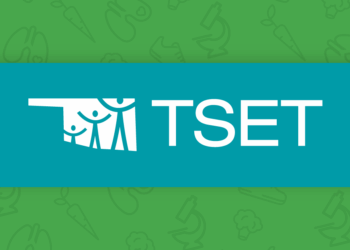OKLAHOMA CITY (OBV) – The Oklahoma Senate passed the Fiscal Year 2025 budget bill on Tuesday, a week after a publicly aired summit to build the budget concluded.
The Senate approved Senate Bill 1125 with a 31-11 vote.
“This has been an historic process and has brought the budget to light for all Oklahomans to see how we negotiate and come to an agreement,” Senate Pro Tem Greg Treat, R-Oklahoma City, said. “I am proud of this process and the widespread support it has gotten from everyone involved. I said from the beginning, this process would be difficult. There were starts, stops and bumps in the road. But we were able to give a behind-the-scenes look at how we come to the budget agreement, line-by-line. This budget has been fully transparent and has shown the process from beginning to end. It includes the largest tax cut in state history in the grocery tax that was signed into law earlier this year, helps victims of domestic violence, helps law enforcement and addresses many other issues that will help all Oklahomans, while staying fiscally conservative.”
The 2024 Budget Summit began on Monday, May 6, with Gov. Kevin Stitt, Treat, House Speaker Charles McCall, Senate Appropriations Chair Chuck Hall and House Appropriations Chair Kevin Wallace all participating. The summit’s multiple sessions were broadcast live online – a first for the process.
“I’m immensely proud of this budget that was crafted through a uniquely transparent process that included countless public meetings to discuss, debate and reach a compromise on each and every funding item,” Hall said. “This conservative budget includes key investments to improve our public schools, aid law enforcement, enhance health care, upgrade critical infrastructure and tackle decades of deferred maintenance. I appreciate Senate Pro Tem Greg Treat for trusting me to finalize this spending plan, and I want to thank all of my colleagues who participated in this process to make this our best budget yet.”
The summit concluded with a $12.47 billion appropriation for FY 2025, less than FY 2024’s $13.18 billion budget.
Some key appropriations from the FY 2025 budget are as follows:
- $3,861,909,518 for the State Department of Education, less than the $3,970,009,518 it received for FY 2024;
- $38,951,365 for the Department of Commerce, more than the $36,377,973 it received for FY 2024;
- $35,174,417 for the Oklahoma Tax Commission, less than the $37,174,417 the commission received received for FY 2024;
- $72 million for the Department of Aerospace and Aeronautics, significantly more than the $11 million it received for FY 2024; and
- $836,343,711 million for the Department of Transportation, which received $801,401,568 million for FY 2024.
A full breakdown of the budget, including appropriations to all departments, was shared by the Oklahoma House of Representatives.
The budget does not include a personal income tax cut, despite both Stitt and McCall pushing for such a cut.
“I think it’s important for Oklahomans if we’re going to spend savings, if we’re going to invest in a lot of things, then we should be able to give Oklahomans another tax cut,” Stitt said during the first session of the budget summit. “There’s a lot of ways to do it, but one of the ideas is to take away all the brackets underneath. So, the poorest Oklahomans would literally pay no tax if we went to a flat bracket, and then we would start on a path to zero.”
Treat previously said that he would not support a cut to the personal income tax since a grocery tax cut was already passed and signed into law this year.
Stitt’s aim is to cut Oklahoma’s income tax down to zero.
“Path to zero means when we have excess revenue, next year when we come into this room in this building, and say there’s a billion-dollar surplus again, it’s automatic that we should give Oklahomans a tax cut. We can modestly grow government, but I think that is a path to zero that we should consider,” Stitt said during the summit. “Oklahomans are hurting, and if you have not got a 25 percent pay increase since 2020, you’ve probably got a reduction in your salary because of inflation and what things are costing.”
Oklahoma’s individual income tax system has six income tax brackets ranging from 0.5 percent to 4.75 percent for top earners. The 4.75 percent rate kicks in at a $7,000 annual income.
All Oklahomans and more than 95 percent of businesses in the state pay the individual income tax. The income tax’s standard deduction is $6,350 for single filers and $12,200 for joint filers.
McCall filed several tax cut bills for this legislative session. Those bills are as follows:
- HB 2948 – Corporate income tax phase out over five years.
- HB 2949 – Flat rate 4.25% personal income tax effective Jan. 1, 2024; rate imposed on taxable income amounts above specific figures based on filing status.
- HB 2950 – .25% personal income tax decrease effective Jan. 1, 2024, and following tax years.
- HB 2951 – .25% personal income tax decrease for 2024 and 2025, with rates to restore to current level (current rates and brackets) for 2026, and following tax years.
- HB 2952 – .50% personal income tax decrease for 2024 and 2025, with rates to restore to current level (current rates and brackets) for 2026, and following tax years.
McCall spoke with OBV earlier this year and emphasized the need for an income tax cut. He said it boils down to making Oklahoma more competitive and growing its workforce.
“I think long term, we have to put Oklahoma on a path to get to zero,” McCall said. “Human resources are mobile. Capitol is mobile. When we talk about workforce, every state’s having workforce challenges,” McCall said. “We want to import talent into the state of Oklahoma while we’re grooming and building it ourselves through our youth and through education. When human resources and capitol are looking to go somewhere, they are going to the states where there is no taxation on there productivity. That’s why we got to get to the zero percent personal income tax in the state of Oklahoma.”
The Oklahoma legislature has passed other tax reform measures during the past two legislative sessions, including eliminating the franchise tax, allowing full expensing of capital investments for businesses and eliminating the marriage penalty within the state’s individual income tax law.

















